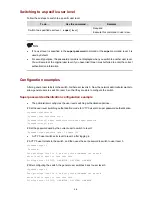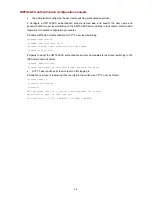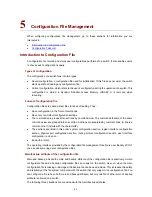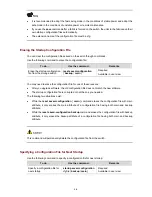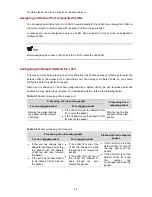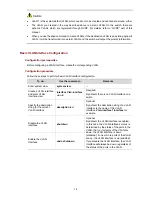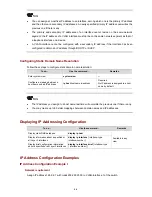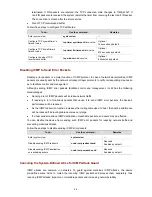
7-2
z
VLAN 1 is the system default VLAN, which needs not to be created and cannot be removed, either.
z
The VLAN you created in the way described above is a static VLAN. On the switch, there are
dynamic VLANs which are registered through GVRP. For details, refer to “GVRP” part of this
manual.
z
When you use the
vlan
command to create VLANs, if the destination VLAN is an existing dynamic
VLAN, it will be transformed into a static VLAN and the switch will output the prompt information.
Basic VLAN Interface Configuration
Configuration prerequisites
Before configuring a VLAN interface, create the corresponding VLAN.
Configuration procedure
Follow these steps to perform basic VLAN interface configuration:
To do...
Use the command...
Remarks
Enter system view
system-view
—
Create a VLAN interface
and enter VLAN
interface view
interface Vlan-interface
vlan-id
Required
By default, there is no VLAN interface on a
switch.
Specify the description
string for the current
VLAN interface
description text
Optional
By default, the description string of a VLAN
interface is the name of this VLAN
interface.
Vlan-interface1 Interface
for
example.
Disable the VLAN
interface
shutdown
Enable the VLAN
Interface
undo shutdown
Optional
By default, the VLAN interface is enabled.
In this case, the VLAN interface’s status is
determined by the status of the ports in the
VLAN, that is, if all ports of the VLAN are
down, the VLAN interface is down
(disabled); if one or more ports of the VLAN
are up, the VLAN interface is up (enabled).
If you disable the VLAN interface, the VLAN
interface will always be down, regardless of
the status of the ports in the VLAN.

